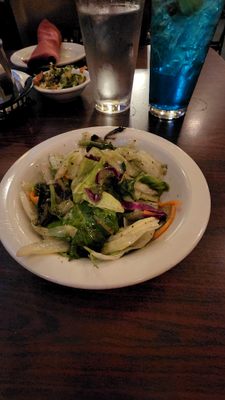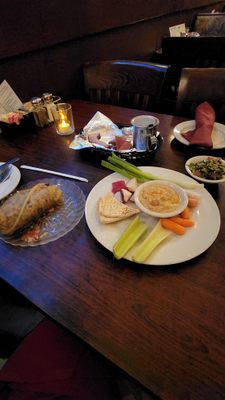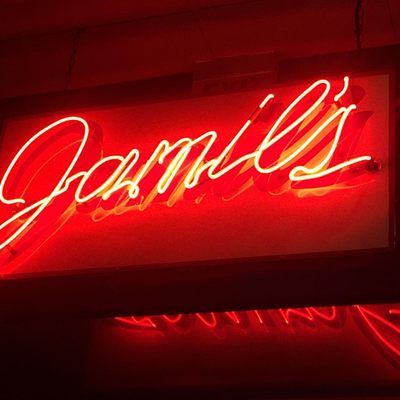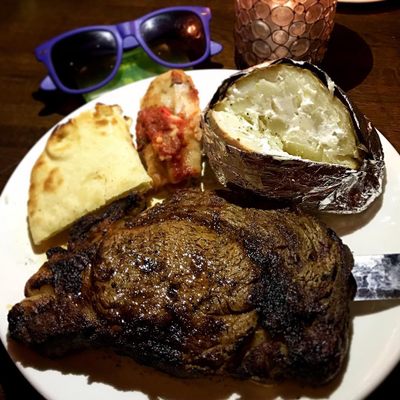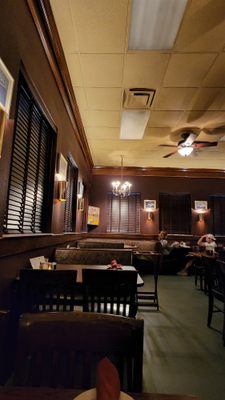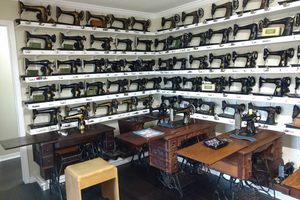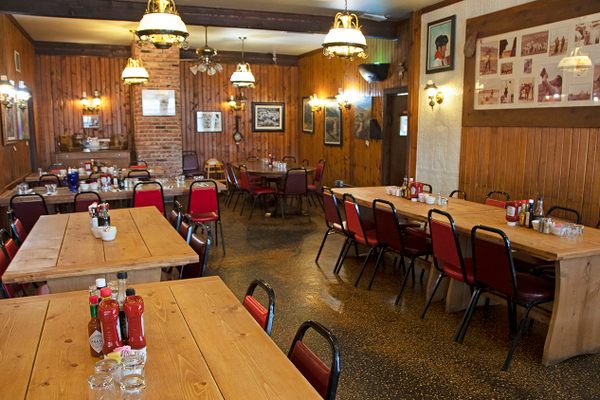About
Nothing speaks to the American vision of diversity quite like the za'atar-spiced barbecue sauce you'll get with your beef kabobs hot off the grill at Jamil's Steakhouse in Tulsa. The hints of the Levant on the menu here belie a statewide phenomenon, a story of unexpected migration, and establishments of cultural syncretism that have lasted more than a century. Out of more than a half-dozen Lebanese steakhouses in Tulsa that opened across the 1900s, only Jamil's remains.
There was a robust Lebanese community in Oklahoma before it was declared a state. The 100 or so Lebanese immigrants working the oil fields surrounding Tulsa in 1900 ballooned to 700 by 1920 as merchant jobs became available in newly developed towns across the region. Most came from one or two neighboring villages in the old country and maintained a tight-knit community once stateside. By 1950, it's said, you could hear Arabic spoken in the streets.
After one of his countrymen opened up a successful nightclub in town that attracted moneyed oil tycoons and, in turn, the day's celebrities, Jamil "Jim" Elias opened the flagship Jamil's Steakhouse. Elias whispered Lebanese spices into the sweet, smoky flavors of classic Oklahoma steakhouse fare while offering pita, hummus, and tabbouleh as sides. At a time when liquor by the drink was outlawed in the state, Jamil's quietly served "liquor by the wink," it's said. Acquaintances caught wind of Elias's success, and soon there were seven Lebanese-owned steakhouses across town.
Between the affable service and hospitality characterized by the spread of free appetizers granted each customer, the steakhouse hosted big names such as Mickey Mantle, Ray Charles, Muhammad Ali, and Jim Carrey over the years.
While the expansion of I-44 displaced Jamil's to a location a mile up the road, not much has changed at the steakhouse today—even much of the staff (namely, Robert Jones, who’s been working there for more than 65 years) remains with the establishment. While the city’s sundry other Lebanese steakhouses fell to the wayside with the onslaught of corporate alternatives, Jamil's survived on excellent service and thick-cut steaks.
The story of Jamil's is immortalized and framed across the walls, punctuated by funky, vintage decor. Customers are still greeted with a generous spread of free appetizers including crudite, crackers, and pickles to warm you up for the main event, be it a whopping cut of beef, pork, lobster, or salmon, all with Jamil's signature foil-wrapped baked potato. The only thing that has changed is that you don't have to be so secretive about your drink order anymore.
Related Tags
Community Contributors
Added By
Published
January 31, 2020
Sources
- https://www.youtube.com/watch?v=2mVcw5OILLo
- https://www.saveur.com/last-lebanese-steakhouse-in-tulsa/
- https://www.tulsaworld.com/weekend/foodreview/review-three-generations-of-the-elias-family-keep-jamil-s/article_b4aada05-19f1-5d73-a43a-192611f92aec.html
- https://oklahoman.com/article/2627/jamils-steakhouse
- https://nondoc.com/2015/12/08/lebanese-steakhouses-its-just-different/
- https://www.okgazette.com/oklahoma/vibrant-lebanese-dining-community-prospers-through-tradition-heirloom-recipes/Content?oid=2952487

